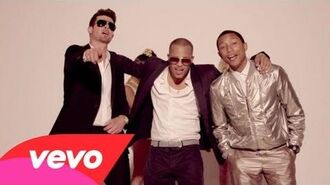Overview[]
A copyright is a legal protection granted to authors of original works including many different mediums. A copyright protects works from being close remediation and is punishable in the United States under the U.S. constitution.
Definition and History[]
A copyright is a type of protection that is granted to the authors or creators of “original works of authorship,” including literary, dramatic, musical, artistic and other intellectual works under law. Not all works have to be protected by a copyright. It is a voluntary decision made by the author. However, a copyright protects an authors work from close remediation and encourages the generation of original works through various mediums. Copyright laws originated with the rise of the printing press. A copyright established under United States law is valid and protected within many countries in the world. Any work protected by copyright that is reproduced and/or distributed by someone other than the author will be subject to be punished by law. However, on problem with copyrights is that reflecting Kirby Ferguson's "Everything Is A Remix".
Patents and Trademarks[]
A copyright is different from a patent in the sense that it does not protect inventions or discoveries. Similarly, a trademark protects words, phrases, symbols, or designs and distinguishes one author from another. A work that is protected under a copyright is distinguishable by the copyright symbol ©.
Duration[]
The duration of a copyright is different depending on the circumstance. Any work registered under a copyright after the January 1, 1978, will last the life of the author followed by an additional 70 years. For those publications under copyright with an anonymous author or made for hire last 95 years proceeding the primary publication or 120 years from the original year of creation. Any work published before the year of 1978 the duration of the copyright there are several factors that come into play and it is essential to reference chapter 3 of the Copyright Act. Work produced after the year 1978 is eligible for an optional renewal after 28 years.
Resources and Further Readings[]
Copyright and You: Copyright Instruction for College Students in the Digital Age.[]
There is a growing need to have copyright education for students in the growing age of new technologies.
Coping with Copying Copyright Violations in Literary Works and Films[]
The copyright laws of literary works and films are some of the most misunderstood and debated. There is a need to establish clear boundaries so authors can stay within copyright norms.
Creating Around Copyright[]
There is a relationship between creativity and constraints under U.S. copyright laws. This author explores the ways to remain creative without violating copyright laws.
Free to be You and Me? Copyright and Constraint[]
Tushnet discussed the many creative solutions have been created to work around copyright restrictions.
Copyright: Regulation Out of Line with Our Digital Reality?[]
McDermott explores the different challenges and negative impacts that copyright laws have on not only libraries but also patrons.
Examples[]
Most cases of copyright infringements are settled before they go to trial.

Robin Thicke - Blurred Lines ft. T.I., Pharrell
Blurred Lines, Robin Thicke ft. Pharrell[]
In 2014, a lawsuit between Robin Thicke, Pharrell Williams and the family of Marvin Gaye went to trail for infringement of Marvin Gaye's 1977 song, "Got To Give It UP". On March 10 2015, the Gaye family won the lawsuit against Thicke and Williams, setting for a total $7.4 million. The Gaye family is currently seeking to add T.I. and Interscope Records to the lawsuit.
A&M Records vs. Napster[]
Napster Inc was a company that allowed users to share and download music. However A&M Records along with many other record companies believed that Napster users should not be using copyrighted music in this way. Napster was aiding the process of sharing music files that were both authorized and unauthorized. In March 2001, Napster was ordered to exhaust all services until the company could comply with copyright laws and violations.
Citations[]
http://copyright.gov/help/faq/faq-duration.html#duration
http://bcheights.com/column/2015/the-blurred-lines-of-copyright-in-the-music-industry/
Langenderfer, Jeff, and Don Lloyd Cook. "Copyright Policies And Issues Raised By A&M Records V. Napster: "The Shot Heard 'Round The World" Or "Not With A Bang But A Whimper?." Journal Of Public Policy & Marketing 20.2 (2001): 280-288. Business Source Complete. Web. 30 Mar. 2015.
Rodriguez, Julia E., Katie Greer, and Barbara Shipman. "Copyright And You: Copyright Instruction For College Students In The Digital Age." Journal Of Academic Librarianship 40.5 (2014): 486-491. Library, Information Science & Technology Abstracts. Web. 30 Mar. 2015.
Bakshi, Apurva, and Ravi Kiran. "Coping With Copying Copyright Violations In Literary Works And Films." Language In India 14.8 (2014): 1-9. Communication & Mass Media Complete. Web. 30 Mar. 2015.
Fishman, Joseph P. "Creating Around Copyright." Harvard Law Review 128.5 (2015): 1333-1404. Business Source Complete. Web. 30 Mar. 2015.
Tushnet, Rebecca. "Free To Be You And Me? Copyright And Constraint." Harvard Law Review 128.5 (2015): 125-136. Business Source Complete. Web. 30 Mar. 2015.
McDermott, Abigail J.1, ajmcderm@umd.edu. "Copyright: Regulation Out Of Line With Our Digital Reality?." Information Technology & Libraries 31.1 (2012): 7-20. Education Full Text (H.W. Wilson). Web. 30 Mar. 2015.
Keywords[]
remediation | medium |